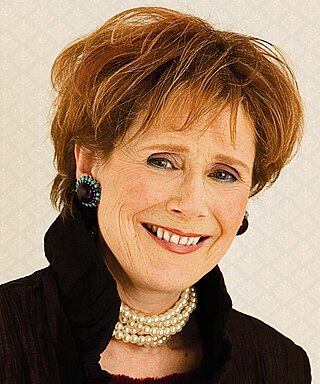Involuntary commitment, civil commitment, or involuntary hospitalization/hospitalisation is a legal process through which an individual who is deemed by a qualified person to have symptoms of severe mental disorder is detained in a psychiatric hospital (inpatient) where they can be treated involuntarily. This treatment may involve the administration of psychoactive drugs, including involuntary administration. In many jurisdictions, people diagnosed with mental health disorders can also be forced to undergo treatment while in the community; this is sometimes referred to as outpatient commitment and shares legal processes with commitment.
A mental disorder, also referred to as a mental illness, a mental health condition, or a psychiatric disability, is a behavioral or mental pattern that causes significant distress or impairment of personal functioning. A mental disorder is also characterized by a clinically significant disturbance in an individual's cognition, emotional regulation, or behavior, often in a social context. Such disturbances may occur as single episodes, may be persistent, or may be relapsing–remitting. There are many different types of mental disorders, with signs and symptoms that vary widely between specific disorders. A mental disorder is one aspect of mental health.

Schizophrenia is a mental disorder characterized variously by hallucinations, delusions, disorganized thinking and behavior, and flat or inappropriate affect. Symptoms develop gradually and typically begin during young adulthood and are never resolved. There is no objective diagnostic test; diagnosis is based on observed behavior, a psychiatric history that includes the person's reported experiences, and reports of others familiar with the person. For a diagnosis of schizophrenia, the described symptoms need to have been present for at least six months or one month. Many people with schizophrenia have other mental disorders, especially mood, anxiety, and substance use disorders, as well as obsessive–compulsive disorder (OCD).
Outpatient commitment—also called assisted outpatient treatment (AOT) or community treatment orders (CTO)—refers to a civil court procedure wherein a legal process orders an individual diagnosed with a severe mental disorder to adhere to an outpatient treatment plan designed to prevent further deterioration or recurrence that is harmful to themselves or others.
Health has a variety of definitions, which have been used for different purposes over time. In general, it refers to physical and emotional well-being, especially that associated with normal functioning of the human body, absent of disease, pain, or injury.

The National Alliance on Mental Illness (NAMI) is a United States–based nonprofit organization originally founded as a grassroots group by family members of people diagnosed with mental illness. NAMI identifies its mission as "providing advocacy, education, support and public awareness so that all individuals and families affected by mental illness can build better lives" and its vision as "a world where all people affected by mental illness live healthy, fulfilling lives supported by a community that cares". NAMI offers classes and trainings for people living with mental illnesses, their families, community members, and professionals, including what is termed psychoeducation, or education about mental illness. NAMI holds regular events which combine fundraising for the organization and education, including Mental Illness Awareness Week and NAMIWalks.

Mental health encompasses emotional, psychological, and social well-being, influencing cognition, perception, and behavior. According to the World Health Organization (WHO), it is a "state of well-being in which the individual realizes his or her abilities, can cope with the normal stresses of life, can work productively and fruitfully, and can contribute to his or her community". It likewise determines how an individual handles stress, interpersonal relationships, and decision-making. Mental health includes subjective well-being, perceived self-efficacy, autonomy, competence, intergenerational dependence, and self-actualization of one's intellectual and emotional potential, among others.
Schizophrenics Anonymous is a peer support group to help people who are affected by schizophrenia and related disorders including bipolar disorder, schizoaffective disorder, psychotic depression and psychosis.

Joe Wicks is a fictional character from the BBC soap opera EastEnders, played by Paul Nicholls. He initially appears on screen between 25 March 1996 and 14 November 1997 and returns for a cameo appearance via a video call to his father, David Wicks, twenty-seven years later on 10 October 2024. EastEnders was praised for the character's portrayal of schizophrenia.

Rethink Mental Illness is an English charity that seeks to improve the lives of people severely affected by mental illness.
Psychoeducation is an evidence-based therapeutic intervention for patients and their loved ones that provides information and support to better understand and cope with illness. Psychoeducation is most often associated with serious mental illness, including dementia, schizophrenia, clinical depression, anxiety disorders, eating disorders, bipolar and personality disorders. The term has also been used for programs that address physical illnesses, such as cancer.

Marjorie Shiona Wallace CBE is a British investigative journalist, author, and broadcaster. She is the founder and chief executive of mental health charity SANE.

Global mental health is the international perspective on different aspects of mental health. It is 'the area of study, research and practice that places a priority on improving mental health and achieving equity in mental health for all people worldwide'. There is a growing body of criticism of the global mental health movement, and has been widely criticised as a neo-colonial or "missionary" project and as primarily a front for pharmaceutical companies seeking new clients for psychiatric drugs.
The Institute for Advancements in Mental Health, formerly known as the Schizophrenia Society of Ontario (SSO), is a charitable organization located in Ontario, Canada, that exists to help those affected by mental illnesses.
The Prince of Wales International Centre for SANE Research (POWIC) in Oxford houses investigations into finding the causes of and better treatment for serious mental illnesses, such as schizophrenia and depression.
Schizophrenia and tobacco smoking have been historically associated. Smoking is known to harm the health of people with schizophrenia.

Joey Rainbow is a fictional character from the Australian soap opera Home and Away, played by Alex O'Han. He made his first screen appearance during the episode broadcast on 20 June 1996. O'Han joined the serial while he was still in high school and was assisted by an on-set tutor. His decision to quit the serial three years later was based on the decision to concentrate on his education. Joey departed on 11 May 1999.
Psych Central is a mental health information and news website. Psych Central is overseen by mental health professionals who create and oversee all the content published on the site. The site was created in 1995. The site was named as one of the Internet's 50 Best Websites in 2008 by Time, and has approximately 6 million unique visitors per month. PsychCentral was acquired by Healthline in August 2020. Former attorney and author, Faye McCray was appointed Editor-In-Chief in 2021.
Numerous studies around the world have found a relationship between socioeconomic status and mental health. There are higher rates of mental illness in groups with lower socioeconomic status (SES), but there is no clear consensus on the exact causative factors. The two principal models that attempt to explain this relationship are the social causation theory, which posits that socioeconomic inequality causes stress that gives rise to mental illness, and the downward drift approach, which assumes that people predisposed to mental illness are reduced in socioeconomic status as a result of the illness. Most literature on these concepts dates back to the mid-1990s and leans heavily towards the social causation model.
Serious mental illness (SMI) is characterized as any mental health condition that impairs seriously or severely from one to several significant life activities, including day-to-day functioning. Five common examples of SMI include bipolar disorders, borderline personality disorder, psychotic disorders, post-traumatic stress disorders, and major depressive disorders. People having SMI experience symptoms that prevent them from having experiences that contribute to a good quality of life, due to social, physical, and psychological limitations of their illnesses. In 2021, there was a 5.5% prevalence rate of U.S. adults diagnosed with SMI, with the highest percentage being in the 18 to 25 year-old group (11.4%). Also in the study, 65.4% of the 5.5% diagnosed adults with SMI received mental health care services.






